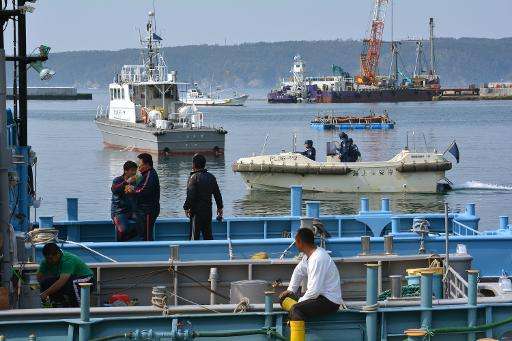Whaling body experts question Japan's new Antartic plan

A panel of experts from the International Whaling Commission on Monday questioned Japan's new Antarctic whaling plan, telling it to provide more information to justify the killings.
Their comments were a fresh setback for Japan, whose "scientific" whaling programme was judged illegal last year by the International Court of Justice after years of criticism from anti-whaling nations and campaigners.
The panel said it had not been given enough information in the Japanese plan to determine whether it was necessary to kill whales to achieve its objectives, and "therefore, the current proposal does not demonstrate the need for lethal sampling to achieve those objectives".
It said Japan must provide more analysis and arguments.
Tokyo submitted a proposal with an annual target of 333 minke whales for future hunts in the Antarctic, down from some 900 under the previous programme.
Japan has said it believes the world's whale population, especially the minke stock, is sizeable enough to accommodate a return to sustainable whaling.
It argued in its proposal to the IWC that knowledge gained by the research killing would help the IWC calculate sustainable levels for hunting.
The lethal research should also lead to better understanding of the Antarctic marine ecosystem, Japan maintains.

The International Court of Justice—the highest court of the United Nations—ruled in March last year that Tokyo was abusing a scientific exemption set out in the 1986 international moratorium on whaling.
It concluded that it was carrying out a commercial hunt under a veneer of science.
After that ruling, Japan said it would not hunt during this winter's Antarctic season but has since expressed its intention to resume "research whaling" in 2015-16.
It has also defined the research period as 12 years from fiscal 2015 in response to the court's criticism of the programme's open-ended nature.
"By collecting scientific data, we aim to resume commercial whaling," agriculture, forestry and fisheries minister Yoshimasa Hayashi said last month.
In response to the IWC's experts, Japan said it would provide further information to show its programme was reasonable "in order to achieve the two research objectives".
It made the comments in a response document published on the IWC's website.
Japan added that some information about whales such as their age could only be collected by catching them.
Japan has long faced considerable international pressure to end whaling.
Last month its whaling ships returned home from the Antarctic with no catch, as planned, after the UN court's decision.
It was the first return without a catch since 1987 when the country began the annual "research" hunt in the Antarctic, according to local media.
Japan killed 251 minke whales in the Antarctic in the 2013-14 season and 103 the previous year, far below its target because of direct action by conservationist group Sea Shepherd.
Despite the scientific pretext for the hunts, Japan makes no secret of the fact that the meat ends up on dinner tables.
© 2015 AFP



















